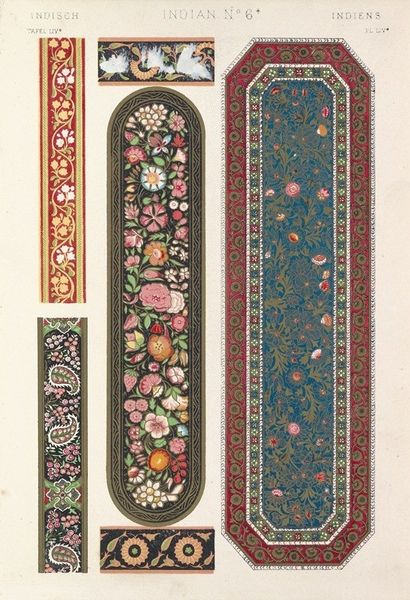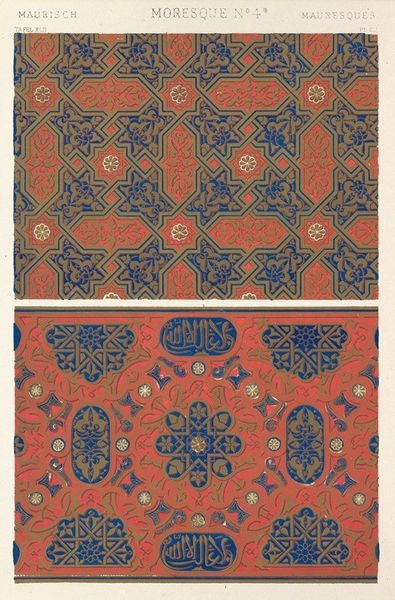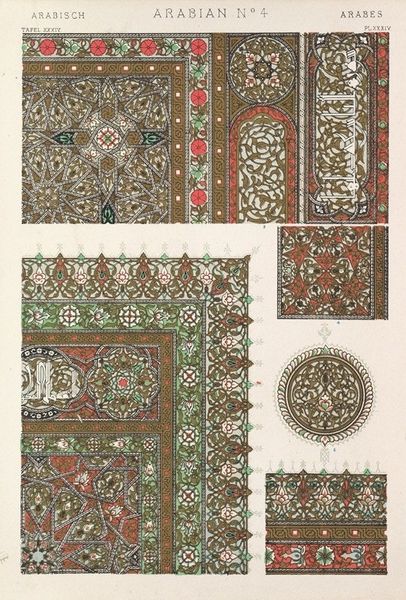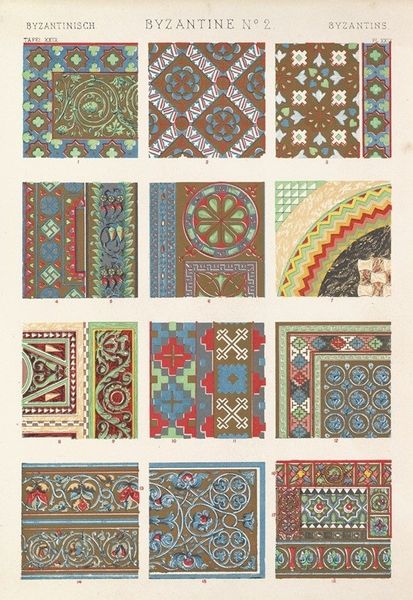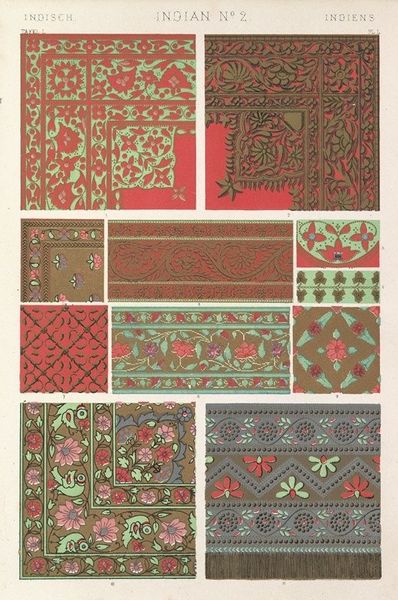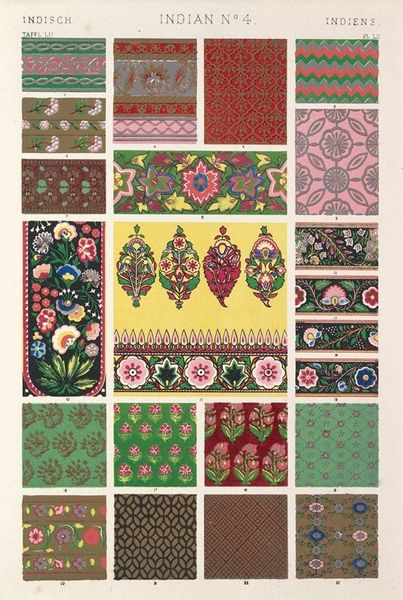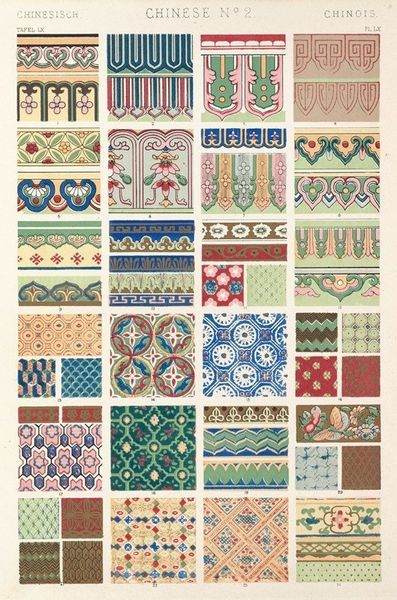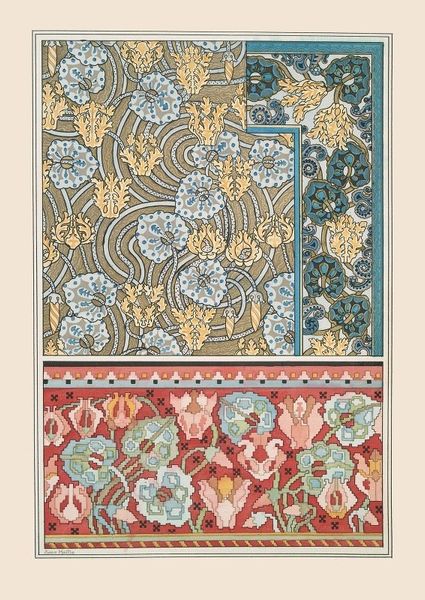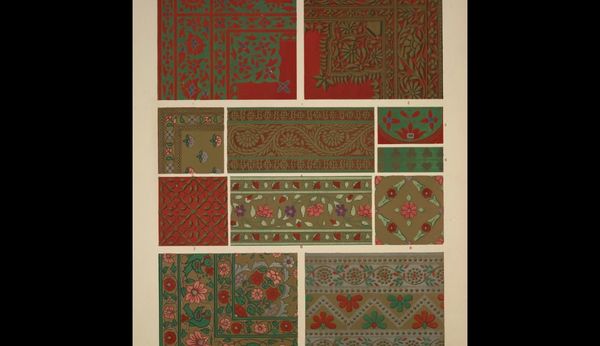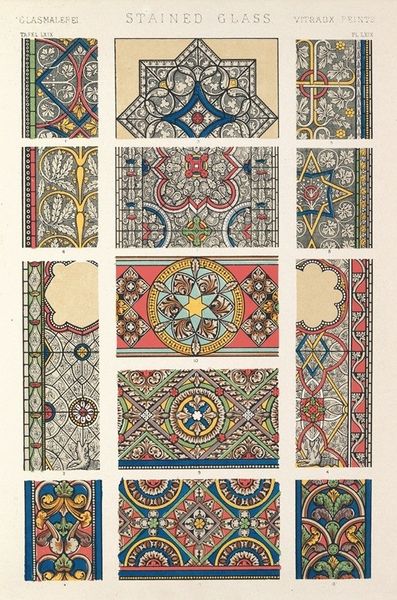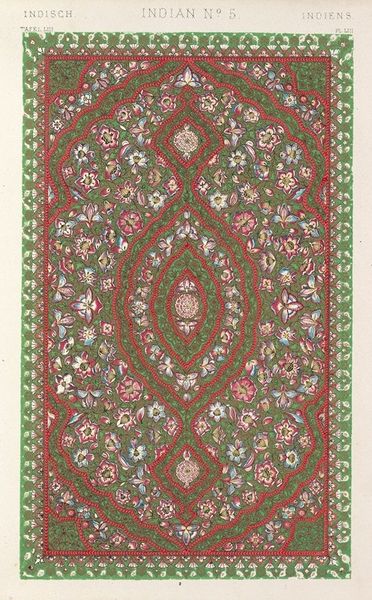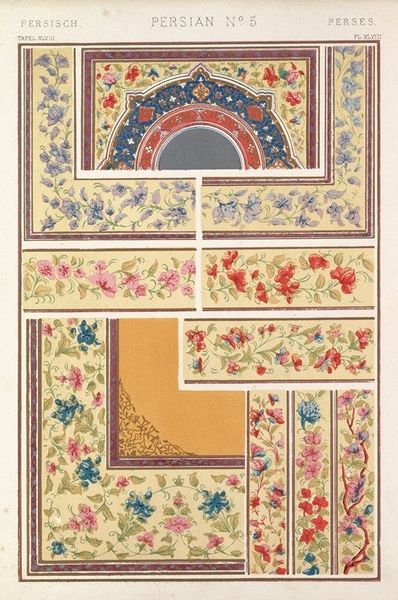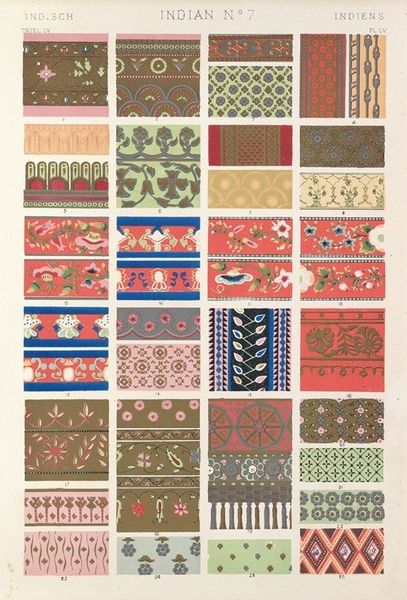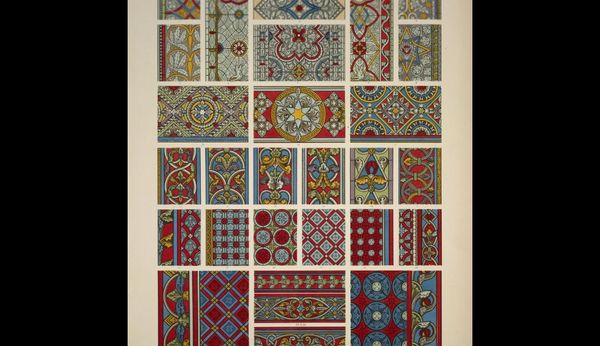
drawing, textile
#
drawing
#
pastel soft colours
#
pattern
#
textile
#
pattern background
#
geometric
#
fabric design
#
orientalism
#
pattern repetition
#
textile design
#
decorative-art
Copyright: Public Domain: Artvee
Editor: This is "Indian No. 5a," a drawing by Owen Jones from 1856, and it looks like it was designed for textiles. There's something so calming about these repeating patterns and muted colors. What strikes you most when you look at it? Curator: I'm immediately drawn to the visual language used here. Consider the paisley motif, its curving form echoing the shape of the seed, a symbol of fertility and new beginnings. This speaks to the enduring power of nature and the cycles of life that are so central to many cultures. Do you notice how that shape repeats, almost like a mantra? Editor: I do. It's almost hypnotic. And that central panel... is that a peacock? Curator: Precisely. In many Eastern traditions, the peacock symbolizes beauty, royalty, and even immortality. By incorporating this bird, Jones is not merely creating a decorative design, but also weaving a tapestry of symbolic meanings, drawing upon a rich cultural heritage. What do you think that heritage is doing in 19th century Europe? Editor: It makes me wonder if viewers would have picked up on those symbols back then. Or would it have just been seen as an exotic design? Curator: That's the crux of it. It invites us to consider Orientalism and its role in shaping Western perceptions of the East. The work serves as a conduit for cultural exchange, however mediated, revealing what was valued and understood—or misunderstood—at the time. Editor: So much to think about, beyond just pretty patterns. It's fascinating to see how even seemingly simple designs can carry so much cultural weight. Curator: Indeed. By understanding the visual symbols within a work, we unlock layers of meaning that connect us to the past, and shed light on our present.
Comments
No comments
Be the first to comment and join the conversation on the ultimate creative platform.
